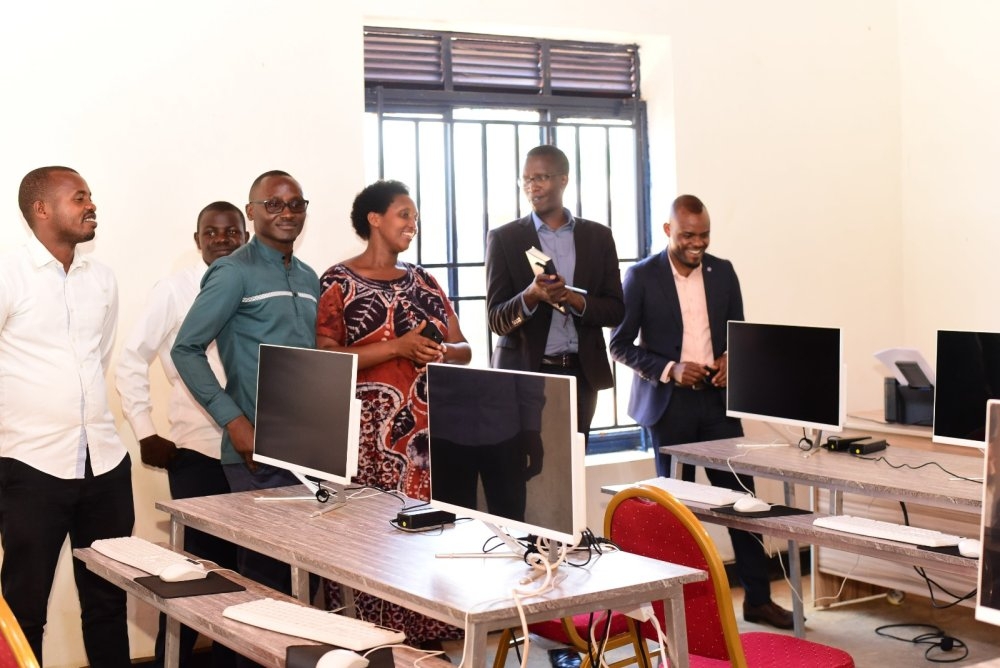

Rwanda aims to provide digital literacy to five million adult citizens, and experts in the ICT sector are advocating for the expansion of internet access centres. These centres are available to community members and schools, to enhance basic digital literacy in using information and communication technologies.
ALSO READ: Why digital skills are crucial for the modern workplace
Alex Ntare, Chief Executive Officer of the Rwanda ICT Chamber, told The New Times that internet access centres equipped with computers are needed to ensure 60 per cent of citizens are digitally literate by 2024.
"The ratio of devices to citizens is still low and leveraging existing facilities would increase inclusion and ensure equitable digital growth,” he noted.
ALSO READ: Bridging the digital divide
Currently, 35.1 per cent of citizens aged 15 and above are reported to have attained basic digital literacy skills, according to the Ministry of ICT and Innovation.


The ratio is expected to be updated in the upcoming Six Integrated Household Living Conditions Survey (EICV6), which has not yet been published due to the Covid-19 restrictions that prevented the conducting of EICV6.
The target to reach five million citizens is part of the National Digital Talent Policy unveiled in 2017.
ALSO READ: Digital ambassadors' key to digital literacy
The training in digital literacy has an emphasis on primary education and general citizens. Particular focus is on youth, women and people with special needs. The policy also looks at workforce upskilling to enhance digital adoption, starting with education systems at secondary and tertiary levels, as well as the national workforce.
ALSO READ: Kagame pushes for increased digital literacy in Comesa region
This plan aims to increase digital skills and literacy across all levels of Rwandan society and increase the demand for electronic services and content.
"With the new initiative of ConnectRwanda 2.0 increasing device penetration will also accelerate the process,” Ntare added.
ALSO READ: Connect Rwanda: Smartphone per household for every village
The overarching goal of the ConnectRwanda 2.0 campaign is to narrow the digital divide by providing affordable 4G smartphones to over a million Rwandans across the country.
Emmanuel Mfitumukiza, Chairperson of Internet Society Rwanda Chapter, said internet access centres are a solution to ensure both citizens in urban and rural areas gain digital literacy.
"The ultimate purpose of the centres is to bridge the divide that encompasses digital literacy. They are established with programmes to empower community members with digital skills to use the Internet productively.
"They are established to foster digital transformation in rural communities through access to internet infrastructure, localised education content, increased access to information, internet services and discover innovative ways to use the Internet in improving their standard of living,” he noted.
The centres such as Kibungo Internet Access Centre in Bugesera, he said, are hosted and operated by people from local communities who are well equipped through the Train the Trainer (TOT) programme to facilitate digital literacy training in the hosting community.
"Local trainers are dedicated champions who can train ordinary citizens on digital literacy so that they get the necessary skills to access online services such as e-learning, e-government, e-health, e-commerce, and financial inclusion services.”
Mfitumukiza said by offering free access to digital devices, internet services, and ongoing digital literacy training to all, internet access centres can significantly contribute to increasing the number of citizens who can make use of technology in their daily lives.
This will empower community members to make full use of the Internet by accessing information, developing their digital literacy and finding innovative ways to use the Internet responsibly, aligning with the national vision for technology integration in education.
"This collaborative effort to provide training to teachers and the local community can bridge the digital divide and empower individuals with essential digital skills,” he said.


